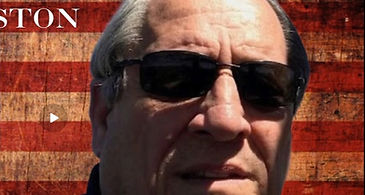The Insurrectionists Part II: When Insurrection is in the Air What Can We Do?
- PAUL PRESTONxd

- Sep 11, 2025
- 5 min read
AENN
New California State went to the steps of the California State Capitol on June 17, 2025 to declare again that there are insurrectionist in the government of California and many of the counties. On June 27, 2025 we published "The Insurrectionists" which presented the main players in California who are leading the insurrection against the people of California and the United States.

Now to go along with listing the those who are insurrectionist a list of Constitutional options available for the President. Many thanks to "Team Hope" for the research.
Guarantee Clause (Article IV, Section 4): This becomes the primary constitutional hook, empowering Congress or the President to intervene when a state lacks a republican form—interpreted historically to include situations where corruption or fraud deprives citizens of representative rule. In Reconstruction-era precedents (e.g., post-Civil War federal oversight of Southern states), it justified military governance and election reforms to combat rigged systems. Here, it could authorize federal supervision of new elections or removal of illegitimate officials, though courts often deem it a "political question" for Congress to resolve rather than litigate.
Insurrection Act of 1807 (10 U.S.C. §§ 251–255): If fraud revelations spark unrest or state officials obstruct federal probes (e.g., using rigged institutions to block access), the President could invoke this for military support, as in historical civil rights crises where state defiance threatened order. However, it's less suited for non-violent fraud; reforms emphasize limits to prevent abuse in election contexts.
Federal Election Laws and Anti-Fraud Statutes:
Voting Rights Act of 1965 (52 U.S.C. §§ 10101 et seq.): Allows DOJ to deploy federal observers or sue for systemic violations, as in past cases of voter suppression or fraud. It could justify court-ordered special elections or redistricting.
Help America Vote Act (52 U.S.C. §§ 20901 et seq.) and National Voter Registration Act: Provide for federal audits and standards, enabling intervention in rigged processes.
RICO Act (18 U.S.C. §§ 1961–1968) and Election Crimes Statutes (e.g., 18 U.S.C. § 241 for conspiracy against rights): Target cartel-orchestrated fraud as organized crime, leading to mass indictments. Historical examples include federal prosecutions in cases like the 1997 Miami mayoral fraud or broader ballot schemes.
National Emergencies Act and Other Tools: Declare an emergency for resource allocation; Congress could enact specific legislation, as in responses to past crises like the 2020 election challenges. The Supreme Court might review under precedents like Bush v. Gore (2000), but deference to political branches is common in such crises.
Adapted Assets Deployed to Combat the Crisis
With electoral legitimacy at stake, assets would emphasize investigative, judicial, and restorative tools over militarization, drawing on agencies experienced in fraud detection. Federal takeover of state functions becomes plausible under the Guarantee Clause.
Federal Law Enforcement and Investigative Bodies:
DOJ's Election Crimes Branch and FBI: Lead multi-agency task forces for forensic audits, using databases like Heritage's election fraud map for patterns. Prosecute under federal statutes, as in historical cases cataloged by the DOJ. Appoint special counsels for independence.
Election Assistance Commission (EAC) and DHS's Cybersecurity and Infrastructure Security Agency (CISA): Oversee emergency election security, deploying federal monitors to counties.
Judicial and Congressional Oversight:
Federal Courts: Issue injunctions to halt state actions by illegitimate officials or order new elections, as in rare interventions like the 2000 Florida recount.
Congress: Use Guarantee Clause authority to legislate reforms, such as appointing interim governors or federal administrators, echoing Reconstruction Acts.
Military or Emergency Assets (If Escalated):
Federalized Forces Under Insurrection Act: Only if crisis leads to violence or state rebellion against federal authority, securing polling sites or infrastructure. Historical non-use in pure fraud cases (e.g., no military in 2020 disputes) suggests restraint.
This scenario risks deepening national divisions, with sources noting fraud is rare but claims can erode trust. The response would balance urgency with safeguards to prevent federal overreach, potentially setting precedents for future crises.
In this further escalated hypothetical scenario—where cartel infiltration has led to rigged elections across all counties and the state executive branch for the past four election cycles, rendering the legitimacy of officials unknowable and triggering a constitutional crisis—the federal response would transform into a profound challenge to American federalism. The inability to discern "who was actually selected and who was elected" undermines the foundational principle of a republican form of government, potentially invalidating state authority and necessitating federal intervention to restore democratic integrity.
This could manifest as widespread distrust in state institutions, civil unrest, or even challenges to federal authority if compromised officials resist probes. Below is a high-level overview of how this alters the dynamics, building on the prior framework, with emphasis on preserving constitutional order while addressing the crisis.
Changed Dynamics in Addressing the Crisis
Constitutional Imperative for Intervention: The crisis shifts from countering infiltration to fundamentally questioning the state's governance structure. The federal government would view the rigged elections as a systemic failure, akin to a "captured" or non-republican state, where corruption has subverted the will of the people.
The President might address the nation via emergency declarations, framing it as a defense of democracy under Article IV, Section 4 of the Constitution (the Guarantee Clause), which obligates the U.S. to ensure every state has a "republican form of government." This could involve public calls for special elections, interim federal oversight, or even temporary suspension of state powers to prevent further harm.
To avoid perceptions of partisanship, the President would likely seek bipartisan congressional involvement, such as joint resolutions or special committees, and coordinate with uncorrupted local entities or other states.
Risks of Broader Instability: Unlike pure infiltration, election rigging creates a legitimacy vacuum, potentially leading to parallel claims of authority (e.g., rival officials or citizen militias), lawsuits flooding federal courts, or protests escalating into violence. The multi-cycle nature implies retroactive invalidation of laws, contracts, or decisions made by fraudulent officials, complicating governance.
If foreign cartel ties are involved, it could be treated as external interference, invoking international law or alliances. The response would prioritize judicial remedies to "de-corrupt" the system, but escalation to emergency powers becomes more likely if state resistance hinders investigations.
Phased and Cautious Approach: Begin with forensic audits and indictments to map the fraud, then transition to restorative measures like court-ordered recounts or new elections. The crisis might prompt calls for national election reforms, but focus remains on the affected state to contain spillover.
Adjusted Key Laws to Combat the Crisis
This scenario directly implicates laws ensuring electoral integrity and republican governance, with the Guarantee Clause as a centerpiece. Federal action would aim to "guarantee" a functional state government, potentially overriding state sovereignty more aggressively than in prior hypotheticals.
One more added point in scenario: So using all of the above scenario it is discovered that due to the infiltration in key positions it is also discovered that the elections were rigged in all counties as well as the state executive government for the past 4 elections. The Federal government has no way of telling who was actually selected and who was elected causing a constitutional crisis. How would that change things?


















Comments